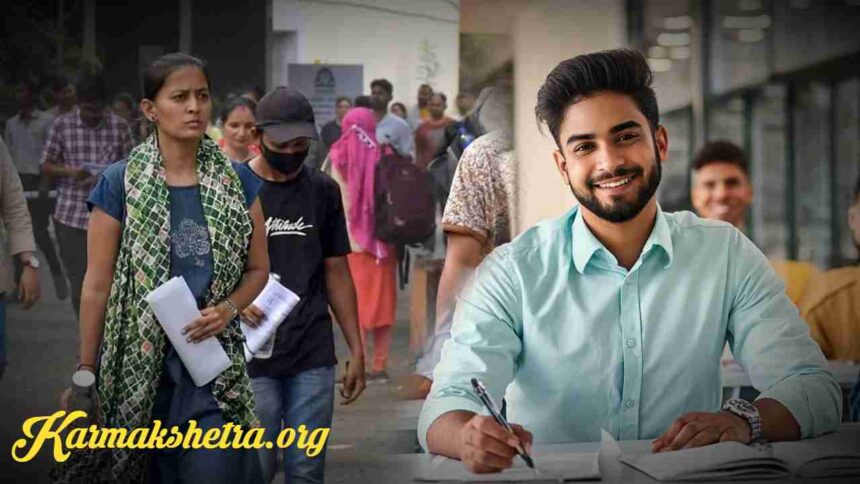Preparing for the Railway Recruitment Board (RRB) Non-Technical Popular Categories (NTPC) exam requires a thorough understanding of the syllabus, exam pattern, and crucial practice in various subjects. This includes bolstering knowledge in Static General Knowledge (GK) areas such as History, Geography, Economy, Polity, and Culture. The RRB NTPC Static GK Practice Series is designed to help aspirants familiarize themselves with the types of questions likely to appear in the exam, thereby enhancing their knowledge and performance.
Understanding the RRB NTPC Syllabus and Exam Pattern
The RRB NTPC exam is conducted in multiple stages: the 1st Stage Computer-Based Test (CBT-1), the 2nd Stage Computer-Based Test (CBT-2), a Typing Skill Test or Computer-Based Aptitude Test (as applicable), followed by Document Verification and a Medical Examination[2][4]. Each stage assesses specific skills and knowledge required for various roles in the Indian Railways.
CBT-1 and CBT-2 Syllabus Overview
The syllabus for both CBT-1 and CBT-2 includes three sections: Mathematics, General Intelligence and Reasoning, and General Awareness[1][2]. Although the syllabus is the same for both stages, the number of questions and marks differ. CBT-1 consists of 100 questions for 100 marks, while CBT-2 has 120 questions for 120 marks.
Each section in the RRB NTPC exam focuses on specific areas:
- Mathematics:
- Number System
- Decimals
- Fractions
- LCM and HCF
- Ratio and Proportions
- Percentages
- Mensuration
- Time and Work
- Time and Distance
- Simple and Compound Interest
- Profit and Loss
- Elementary Algebra
- Geometry and Trigonometry
- Elementary Statistics
- General Intelligence and Reasoning:
- Analogies
- Completion of Number and Alphabetical Series
- Coding and Decoding
- Mathematical Operations
- Similarities and Differences
- Relationships
- Analytical Reasoning
- Syllogism
- Jumbling
- Venn Diagrams
- Puzzle
- Data Sufficiency
- Statement-Conclusion
- Statement-Courses of Action
- Decision Making
- Maps
- Interpretation of Graphs
- General Awareness:
- Current Events of National and International Importance
- Games and Sports
- Art and Culture of India
- Indian Literature
- Monuments and Places of India
- General Science and Life Science (up to 10th CBSE)
- History of India and Freedom Struggle
- Physical, Social, and Economic Geography of India and the World
- Indian Polity and Governance
- General Scientific and Technological Developments
- Environmental Issues Concerning India and the World
- Basics of Computers and Computer Applications
- Common Abbreviations
- Transport Systems in India
- Indian Economy
- Famous Personalities of India and the World
- Flagship Government Programs
- Flora and Fauna of India
- Important Government and Public Sector Organizations of India
Practice and Preparation
To excel in the RRB NTPC exam, it’s essential to practice with exam-type questions and understand the detailed syllabus and exam pattern. Practicing with sample questions, such as those in the RRB NTPC Static GK Practice Series, can significantly enhance a candidate’s knowledge and performance. Here are a few questions from different subjects to illustrate the type of questions one may encounter:
General Awareness:
- 1. Jute is used for making bags, mats, ropes, carpets, and other products.
- 2. Groundnut is both a rabi and kharif crop.
- 3. The Green Revolution originated in Mexico.
- 4. Rice and wheat are the crops primarily associated with the Green Revolution in India.
General Science:
- 1. The unit of speed is meter/second.
- 2. The principle of a washing machine is separation.
- 3. Rubber expands the most when heated.
- 4. The value of ‘g’ decreases as you move from the equator to the poles.
History:
- 1. The royal physician of Rajgir was Jivaka, son of a courtesan named Amrapali.
- 2. The Chola king Rajendra did not adopt the title “Pandit Chola.”
- 3. Arab travelers referred to the Rashtrakuta dynasty as “Balhar.”
- 4. Mehrgarh is an archaeological site not located in India.
Conclusion
The RRB NTPC exam is a comprehensive assessment that requires a thorough understanding of various subjects and continuous practice. By familiarizing oneself with the syllabus, exam pattern, and practicing with sample questions, candidates can significantly improve their performance and increase their chances of success.
Given the format requirements, this article is crafted to provide detailed information on the RRB NTPC syllabus and exam pattern, emphasizing key areas and offering practice questions to aid in preparation. The structure is SEO-friendly, avoiding any extra links or branding, and is designed for direct use on websites.

